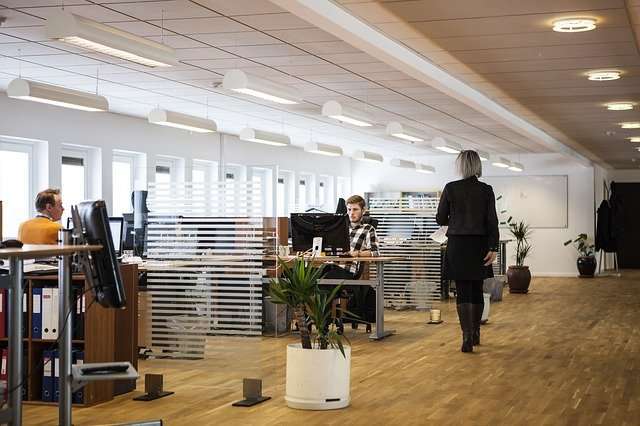The New Business World Order
Like most other business leaders, I am a high energy and positive individual. I thrive on the electric energy when high performance people and teams interact. Whenever I have the chance, I like to motivate people by filling them with positive feedback and letting them know that they are valued. In the past, If I needed anything, I would strike up a discussion with the relevant person and get it done immediately.
When good news happened, I would instantly share the news with a few key personnel and it would spread like wild fire creating an amazing buzz on the entire floor in the office. This is why I loved the office. It was a place where people came together to achieve amazing things. I thrived on the energy created by such dynamism and excitement.

So back in March of 2020 when we moved into remote work mode during the pandemic, I was disappointed, in a state of shock and basically lost. To this day, I still commute to the office every single day but it just isn’t the same when I have meetings with team members over Zoom.
Like me, many business owners and managers are grappling with the newfound reality of the pandemic work culture. With telecommuting in full swing across the world, our professional life has gone almost 100% virtual. While there are major benefits for businesses, like reduced travel and cost reduction, in my mind, the loss of the office may be ultimately damaging. In particular, we are going to have to re-imagine how we manage and retain our employees.
Of course, these setbacks can be overcome. But first, let’s talk about the pandemic, how it changed the office, and what exactly its effects have been.
The abrupt change in the office dynamic
When the pandemic first started, there was an immediate mad dash toward converting the office into work-from-home arrangements. Many went over the cliff in terms of this transition, with companies going on full telecommuting mode with even tech giants such as Twitter and Shopify announcing that they would become permanently remote. Even the most traditional companies have gone partially remote, with employees only coming in on certain days of the week, or employees having the option of coming in or not.
Most saw this in a positive light. For employees the benefits were noticeable right away. As an example, commuting can be quite an annoyance for the typical office worker. First you have to dress up in work attire, then you have to take whatever transportation method you have available in order to get to work. All of this is effort and time spent and with remote work it is completely eliminated.
For companies, the cost saving was also seemingly crystal clear. The reduced need for a physical office space quickly rose as one of the biggest advantages of virtual work environments. Office space rent remains as one of the cornerstone expenses for any company. Now that has become completely optional. Add to this all sorts of related expenses such as supplies and utilities, not to mention the occasional extra expense for employee wellbeing in the office, this could amount to significant savings.

The loss of the physical office has potentially eroded company cohesion
The first and foremost disadvantage comes from the loss of the physical office. Most people tend to just treat the office as a place where people come together to work, but it’s so much more than that. It is an ecosystem of its own, with its own customs and its own culture.
People come to the office for more than simply working. It’s where they greet their team members and connect on a human level. It’s where they can look around and see that the company is more than just a group of people working on one thing. Mutual respect is forged, and channels of understanding are established. This is why a positive office culture is so crucial, because it can lead to making or breaking a team and making or breaking a great company.
Within a remote setting, all of this is gone. Talking to floating heads on a screen is certainly not the same. It is so easy to forget the humanity between team members. Generating positive energy, while doable, is more difficult through a camera. There is an intangible aspect about excitement and optimism that just can’t be captured through a Zoom call.
In my view, being in a physical office used to form a barrier against employee turnover. When there is access to a great office filled with amazing people that you have strong relationships with, it’s harder for anyone to leave that behind.
Which leads me to the next reason why remote work has become potentially detrimental to a company.
Managing the workforce is now more costly
Now that remote work has spread so far and wide, there is seemingly no barrier to hiring talent from anywhere. I can be sitting in Montreal while managing a workforce that is distributed across the globe.
An employer may look at this and think that this is actually great, since it opens up a global talent pool. But make no mistake, this also means that any company out in the world can poach your employees as well. With remote work, you are now competing with the entire world when it comes to good talent.
There are two increases in costs related to this. One is that you have to now pay that much more in wages in order to retain your employees. The other is that this will likely increase turnover, and that will bring on higher recruiting costs. Think about every time an employee leaves your company, and you have to fill the gap. The process of getting the right person to fill a position is expensive. From going through resumes, then fielding interviews, until you make an offer, it’s all time and money spent that could have gone elsewhere. Plus, you have to train that new employee and allow the person time to become integrated into the team.
Increasing pressure leads to change
This is on top of the increased pressure on how the internal structures of our companies have to change. With everyone working from home at some point, new management systems and reporting structures need to be put in place. Managers have to adapt to this new environment, or you have to bring in new managers who are better suited for such conditions.
All of this cost will eventually compress margins, which will be later passed onto our customers. And this disruption will certainly affect our bottom lines, eventually growing to even threatening our business as a whole.

We have to rethink the company
Ultimately, what we need to do is to rethink what a company is. The cat’s out of the bag. We’re not going to be able to simply go back to bringing employees in-house. Everyone has tasted the benefits of working from home and there will always be people who will advocate more for this. If you stubbornly decide against remote work, employees will flock to companies that do offer it.
What we do need to do is rethink what a company is from ground up. Forget the classic office setting with all sorts of on-premise perks and bonuses. We need to re-evaluate how we can deliver value for our employees, and make them feel the same kind of passion and devotion for a company that could only be felt in a physical office setting.
Companies will obviously have to get more creative with retention tools. Salaries will have to be raised, and equity might have to be released to every employee. A more creative bonus scheme could be introduced. The corporate structure as we know it will have to be discarded to make way for a new revamped system that empowers and properly recognizes each and every person in the company.
Vision and purpose are the unbeaten leaders in retention
But outside of these tangible solutions, what we as business leaders have to remind ourselves is that no amount of salary or perks beats vision and purpose. Instilling pride in your company among the employees goes a long way. You have to make them believe that they are working for the best company that they could work for and this can certainly be achieved remotely.
This means we have to re-engage the employee over the virtual space. We have to create better ways to encourage our teams and raise them up. We need to find new methods of providing value for our people so that they in turn feel validated and stay loyal to the company.
Weekly leadership session
During the pandemic, I started a weekly leadership session with all my employees, where I mentor them on various soft skills needed to become a better business leader. Typically, we’ll use examples from our daily operations and our own business goals in order to drive home certain lessons and points. These have been great ways for me to gain insight into my employees and their capacities, while engaging them with a value-proposition that complements their day-to-day tasks. So far, it has been met with great enthusiasm.
As much as I have been inconvenienced by work-from-home arrangements, the discovery of new rituals such as this have been a pleasure. And if the pandemic has shown anything, it is that we’ll survive and thrive through our creativity and continued innovation. It’s time to bring that spirit inside our companies as well.
